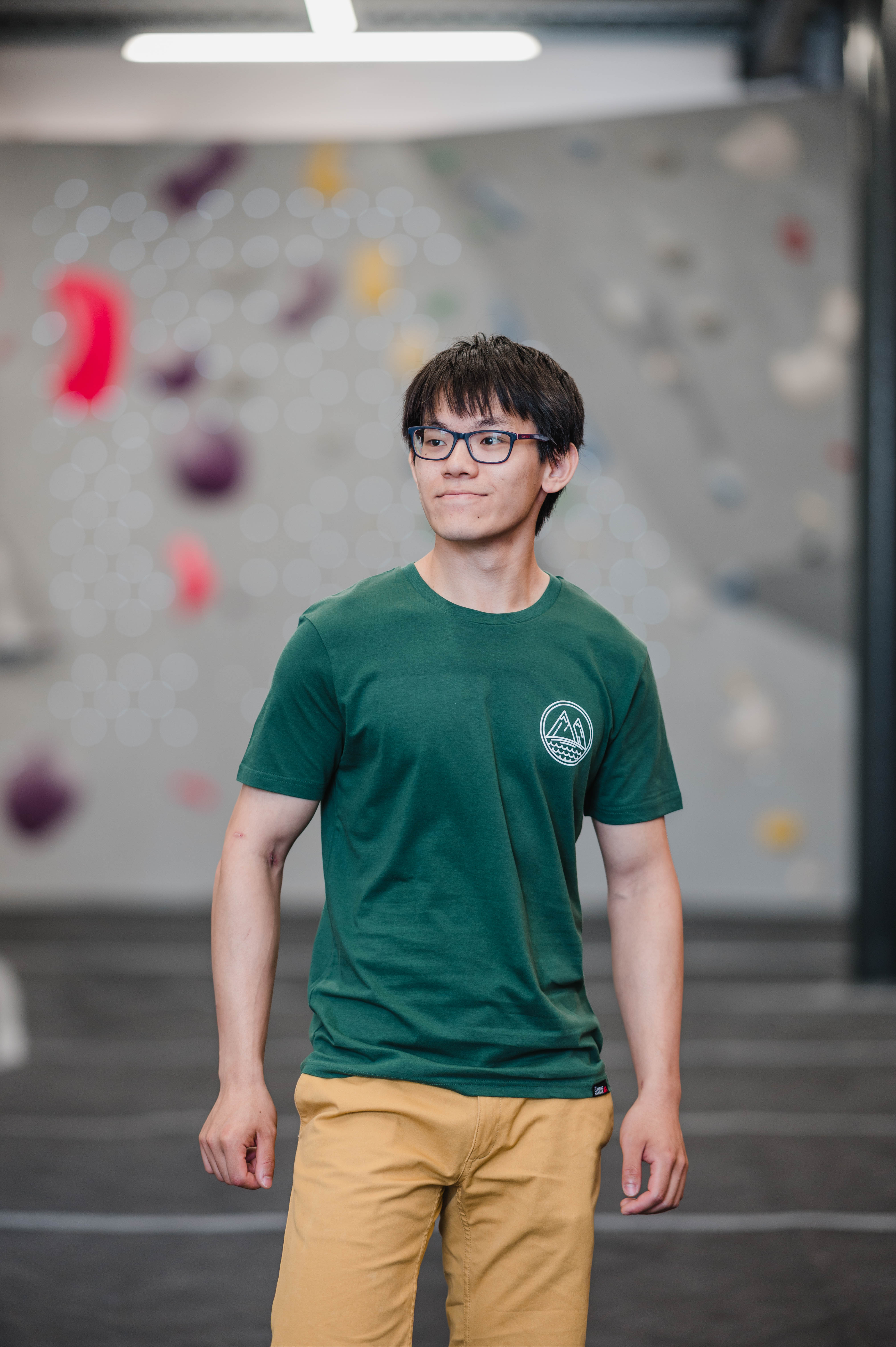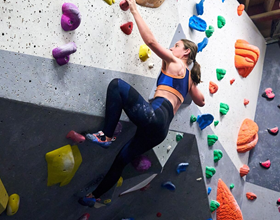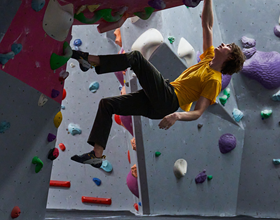

Climbers all have their favourite climbing styles and holds. It’s usually the ones they find easiest or cater to their strengths. It’s natural to spend more time on the things we prefer. But it’s working our weaknesses which provides the biggest gains.
This means dealing with setbacks and disappointment. It means judging ourselves less harshly and reducing our limiting beliefs.
1. WARM UP
Take two minutes at the beginning of your session to perform a breathing exercise. The intent is for you to focus on your breath entirely and notice when your mind wanders (thoughts such as “this is silly”, “Did I remember to set the two minute timer?”).
The purpose of this exercise is to practice catching the moment when our mind wanders, then refocus the mind to where we want our attention to be.
Don’t worry if you get distracted. In fact, this is a good thing. It’s like doing a rep of a brain exercise and increasing your brain’s XP each time you focus it back in. This will allow you to be in control of your mindset and give control to your emotional brain.

Alex Fong is The Climbing Hangar retail manager and an experienced climbing coach.
2. EXERCISE
Choose 4 blocks you’d usually avoid. Spend 15 minutes on each. Two of the blocs will be grades you feel you “should” be able to climb but might avoid because they make you feel incompetent when you struggle and require repeated attempts to crack a boulder. The latter two will be a grade higher than you’re comfortable with and may result in a failed attempt.
Whilst climbing, try to catch the moment your brain starts to sabotage your effort.
Notice the thoughts and then redirect your attention back to the boulder. Bonus points for writing your intrusive thoughts once you return to the mat.
Practicing this skill of refocusing your mind during a climb will help you broaden your own self-belief in your capabilities, your ability to grow and your capacity to endure failure.
We need to get comfortable with failure because climbing gets boring without it. And the magic happens when you finally get something you’d failed to get before.
You may be surprised by what you’re capable of when you’re in the driver’s seat of your brain. So let’s grab the wheel.


